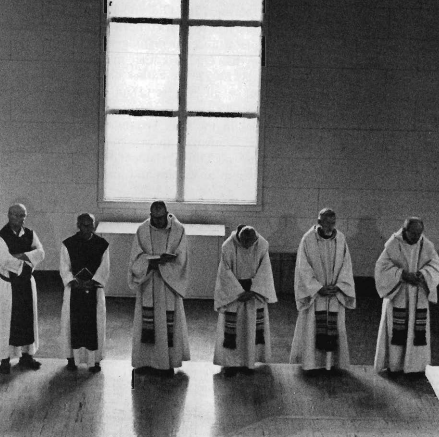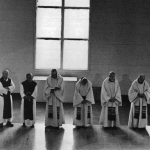Blog
Topic Pages: Old Testament Resources
February 19, 2021
2012: Grant Hardy, “The King James Bible and the Future of Missionary Work,” Dialogue 45.2 (Summer 2012): 1– 44.
“Another difficulty, also related to new truths being revealed in familiar language, is that modernday scriptures occasionally make their points with phrases borrowed from the KJV, but taken out of context. Consequently, the Latter-day meanings cannot be read back into other versions of the Bible. This point is important enough to warrant three examples.”
2006: Karl Sandberg, “Jacob and the Angel: Modern Readers and the Old Testament,” Dialogue 39.1 (Spring 2006): 180– 187.
“If we simply open our eyes and look about us, it would seem that Amos got it wrong. In societies insulated by affluence, where life runs in routine and moves by diversion, it is visible that the word of God is something most people get along very well without. But in the lives of individuals and societies, tragedies befall, the comforts of routine and the anodyne of affluence cease to satisfy, and people are at length obliged to look for what supports life at its foundations.”
1992: Seymour Kirkland, “Judaism and Mormonism: Paradigm and Supersession,” Dialogue 25.3 (Fall 1992): 59– 67.
“At the same time biblical Israel served as an exemplary model for those Christian thinkers and groups who took seriously the Old Testament example of life lived in faith, despite all catastrophes and sufferings, of the presence of holiness in the concrete world of nature and history.”
1986: Boyd Kirkland, “Elohim and Jehovah in Mormonism and the Bible,” Dialogue 19.1 (Spring 1986): 79– 95.
“The monotheistic theology of the Old Testament designated its God by either Elohim or Jehovah, although Jehovah predominates. Jehovah was not known as one member of a divine triad — either as Father or Son. Although comparisons might be made between Jehovah and the various divine paternal pantheons worshipped by Israel’s neighbors, Israel itself did not seem to consider Jehovah subject to any other god, paternal or otherwise.”
1984: Roderick Saxey, “A Physician’s Reflections on Old Testament Medicine,” Dialogue 16.2 (Autumn 1984): 37– 51.
“Latter-day Saints demonstrate a perennial interest in health issues of all kinds, from the dietary role of meats to the therapeutic use of herb teas. At least some of this interest can be attributed to Mormon appreciation of the Old Testament, a feeling of kinship with the Jews, and a belief that the Law of Moses included a strict health code akin to the Word of Wisdom.”
1983: George D. Smith, “Isaiah Updated,” Dialogue 16.2 (Summer 1983): 37– 51.
“In the time of Isaiah, some eight hundred years before the coming of Christ, there was, of course, no Old Testament as we know it today. The five books of the Torah (the Law) were not assembled until about 400 B.C., and it was not until A.D. 90 that most of the final canon of the Hebrew Bible — the Law, the Prophets, and the Writings •— was decided by a council of teachers at Jamnia, thirty miles from the ruins of Jerusalem.”
1977: Melodie Moench, “Nineteenth-Century Mormons: The New Israel,” Dialogue 12.1 (Spring 1977): 42– 56.
“The Mormons of the 19th century saw themselves as a new Israel very much like the old. They appropriated ancient Israel’s sentiments and traditions, and its special status as God’s covenant people. For a Christian group, Mormons had an unusual affinity for the Old Testament.”v
1975: John Sorenson, “The ‘Brass Plates’ and Biblical Scholarship,” Dialogue 10.4 (Winter 1975): 31– 39.
“One of the notable intellectual activities of the 19th and early 20th centuries was development of the view that the Old Testament was a composite of ancient documents of varied age and source.”
1974: Margaret Rampton Munk, “Three portraits of women from the Old Testament,” Dialogue 9.2 (Summer 1974): 53– 61.
Poetry of Old Testament women.
1972: Leslie No’el Swaney, “Modern Biblical Scholarship” Dialogue 7.2 (Summer 1972): 73– 74.
Review of The Cambridge History of the Bible. Vol. I: From the Beginnings to Jerome. Edited by P. R. Ackroyd and C. F. Evans.
1968: Louis Midgley, “The Divinity in Humanity” Dialogue 3.2 (Summer 1968): 134 – 138.
Review of You Shall Be as Gods: A Radical Interpretation of the Old Testament and Its Tradition. By Erich Froram.


 Back to all blog articles
Back to all blog articles


